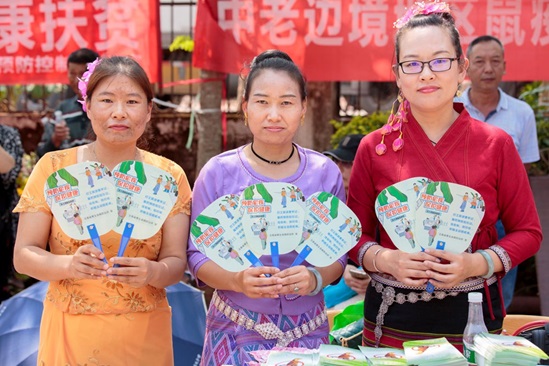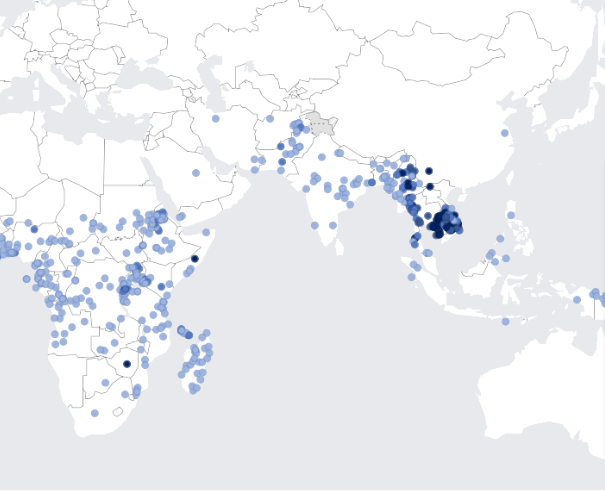/mme-images/mme-banner-.tmb-768v.jpg?sfvrsn=a96fd1d9_5)
Mekong Malaria Elimination programme
Man and child sitting on a hammock with net in Viet Nam as part a drive to eliminate malaria bin the Mekong subregion.
What is the role of the Mekong Malaria Elimination Programme?
The WHO Mekong Malaria Elimination (MME) programme leads coordination among all countries of the Greater Mekong Subregion in line with the Strategy for malaria elimination in the Greater Mekong subregion (2015–2030) and the Regional Framework for reaching the unreached in the Western Pacific (2022–2030) to elimination all species of human malaria across the subregion. MME’s key area of work include partnership coordination, advocacy and communication, as well as leading technical support on cross-country projects, regional/country surveillance, national malaria elimination intensification plans, and aggressive approaches.
Learn more about the Mekong Malaria Elimination or contact [email protected] for more information
Publications

The Mekong Malaria Elimination (MME) programme is an initiative aimed at supporting Greater Mekong Subregion (GMS) countries – Cambodia, Lao People's...

The Mekong Malaria Elimination (MME) programme is an initiative aimed at supporting Greater Mekong Subregion (GMS) countries – Cambodia, Lao People's...

Mekong Malaria Elimination ProgrammeEpidemiology summaryVolume 23July–September 2023GMS: Cambodia, Lao People's Democratic Republic, Myanmar, Thailand,Viet...

/mme-images/mekong-malaria-elimination-video.tmb-549v.png?sfvrsn=ac5227e5_1)
/multimedia/chan-sophal-cambodia-video.tmb-549v.png?sfvrsn=d615dd47_1)
/multimedia/mme-ides-video-cover-image.tmb-549v.png?sfvrsn=101b78c0_1)

/photostory/2021-waaw-viet-nam/waaw-2021-viet-nam-photo-story-1.tmb-549v.jpg?Culture=en&sfvrsn=6ed940f5_1)

/feature-stories/china-malaria-school-story-2019-5.tmb-768v.jpg?sfvrsn=fd5a04f5_8)
